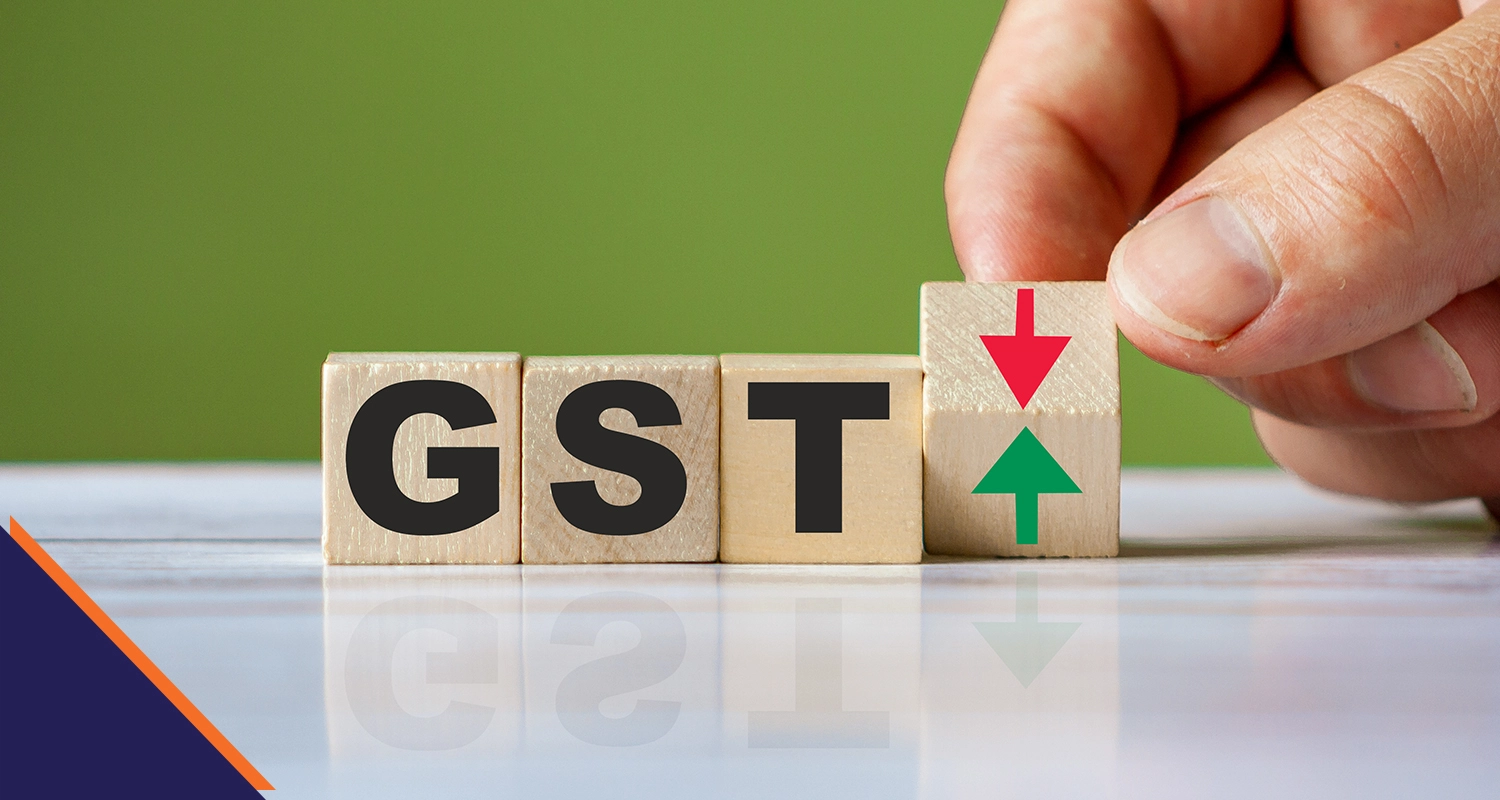What is GST Returns? Who Should File & Types of GST Returns
Table of Contents
The Goods and Services Tax (GST) introduced in 2017 has truly transformed India's indirect tax system. Along with this change, it has now become the responsibility of businesses across India to file regular GST returns. Regardless of the fact that you are a seasoned entrepreneur or just starting out or an already established enterprise, understanding GST return filing is crucial. This guide simplifies the concept for you by breaking down the different types of returns, benefits, how to file and other important considerations to ensure you navigate the process seamlessly and avoid any penalties.
What is GST Returns?
A GST return is an official record that contains all the information about purchases, sales, taxes paid on purchases, and taxes received on sales of a product or service rendered by the business. Once the GST returns have been submitted, then the business owner should settle their tax debt. Check out how the GST Council influences tax return policies.
Who needs to file GST Returns?
Each and every business that is registered under the GST system should undergo the GST Return filing process. The filing process has to be identified on the basis of the nature of the business.
The entities that must file GST returns are:
- A registered businessman dealing with purchases and sales, output GST (on sales), and input tax credit (GST paid on purchases).
- A trader with a yearly turnover of ₹1.5 Crores or less who has opted for the composition scheme.
- Entities with over ₹20 Lakhs in annual turnover must have a valid GST registration and file returns. In some states, the annual turnover limit is set at ₹10 Lakhs.
What are the Benefits of filing GST Returns
- Avoid Penalties and Late Fees: Filing on time ensures you avoid these financial burdens.
- Claim Input Tax Credit (ITC): ITC allows businesses to claim credit for the GST paid on purchases used for business purposes. However, you can only claim ITC if you file your GST returns.
- Maintain Compliance and Credibility: Regular filing demonstrates your commitment to tax compliance which in the long term can be beneficial when applying for loans, tenders, or attracting investors.
- Track Business Performance: The data available from your GST returns can be used to analyze your business performance, identify areas for improvement, and make informed financial decisions.
- Reduced Risk of Audits: Timely filing reduces the chances of your business being selected for an audit by the tax authorities which saves you time, resources, and potential stress associated with tax audits.
- Streamlined Business Operations: Filing GST returns regularly helps maintain organized financial records and simplifies tax compliance for your business.
Sapna aapka. Business Loan Humara.
Apply NowWhat are the types of GST Returns?
|
Type of GST Return |
Who should file |
What should be filed |
Frequency |
Filing Due Date |
|
GSTR-1 |
Registered Taxable Supplier |
Details of the outward supplies of all the taxable goods and services. |
Monthly Quarterly (if opted under the QRMP scheme) |
11th of the following month 13th of the month succeeding the quarter (for quarterly filing) |
|
GSTR-3B |
Registered Taxable Supplier |
Details of all the outward supplies and the input tax credit claimed along with the tax amount paid. |
Monthly Quarterly (if opted under the QRMP scheme) |
20th of the following month 22nd or 24th of the month succeeding the quarter (for quarterly filing) |
|
GSTR-4 |
Business Owners |
Those who have opted for Composition scheme |
Annually |
30th of the month succeeding the given financial year |
|
GSTR-5 |
Non-resident taxable persons |
GST Returns details |
Monthly |
20th of the following month |
|
GSTR-5A |
Non-resident OIDAR service providers |
GST Returns details |
Monthly |
20th of the following month |
|
GSTR-6 |
Input tax distributor |
GST returns to distribute the input tax credit to its branches. |
Monthly |
13th of the following month |
|
GSTR-7 |
Registered businesses |
GST returns filed by businesses that deduct TDS |
Monthly |
10th of the following month |
|
GSTR-8 |
e-commerce operators |
Details about the supplies affected and the amount of tax collected at source |
Monthly |
10th of the following month |
|
GSTR-9 |
Regular GST-registered businesses |
Details of GST Annual returns |
Annually |
31st December of the next financial year |
|
GSTR-9C |
Applicable Taxpayer |
Self-certified annual audit. |
Annually |
31st December of the next financial year |
|
GSTR-10 |
Business owners whose GST has been cancelled |
Details of final GST returns |
When the registration is cancelled |
Within three months of cancellation of registration |
|
GSTR-11 |
Person having UIN |
Details of inward supplies |
Monthly |
28th of the following month |
How to file GST Returns Online?
Filing your GST returns is a simple process, and the government has made provisions for you to do it online, saving valuable time and effort. To understand the GST Returns filing process, just follow the steps below:
Step 1: Go to the official GST website at www.gst.gov.in and log in with your credentials
Step 2: Once logged in, you will be redirected to the “Dashboard.” Then click on “Continue to Dashboard.
Step 3: Thoroughly check your ledger balance, if any, and click on the tab of “File Returns”
Step 4: Enter the financial year, the return filing period in the designated space, and click on “Search”
Step 5: Select the type of return you wish to file, for eg., GSTR - 1 or 3B, and then click on “Prepare Online.
Step 6: Based on your tax liability, pick the appropriate choice. If you have no liability, click on the “File Nil GSTR option and click on File Statement
Step 7: Confirm the check box in this part of the GST return filing process. See if all the data is correct or not.
Step 8: Go to the dropdown menu and select the authorised signatory
Step 9: Select the File with EVC; option, and provide the OTP you receive on your registered mobile
Conclusion
Understanding GST return filing might seem complex at first, but once you have understood the steps outlined above, it is a cakewalk. By getting to know about the different return types, their due dates, and the online filing procedure, you can ensure timely compliance and avoid penalties.
FAQs
Q1. What is the monthly GST return?
Ans. GSTR-3B is a monthly GST return as defined by the GST Council of India. Every registered taxpayer is expected to file it. It includes details of the previous month’s sales and purchases, along with the taxes paid on them and other details.
Q2. What is the need to file a GST return?
Ans. Filing GST returns ensures compliance with tax regulations. It helps in maintaining a clear record of your business transactions. This can be useful for financial planning, audits, and other purposes. Failure to file returns can lead to penalties and other legal consequences.
Q3. Who is eligible for GST return
Ans. Any business entity that has been registered under the GST Act is required to file GST returns. It usually includes firms that supply goods and provide services, either within or outside their state. Even e-commerce operators and non-resident entities registered under the GST Act must file GST returns.
Q4. What are the charges for GST filing?
Ans. GST return filing charges in India vary from one state to another and usually depend on the return type. The charges are different for each type of return. Here are the details of the charges for different types of returns:
|
Types of GST Return |
Charges |
|
GSTR-1 |
Rs. 50 per day (maximum Rs. 5,000) |
|
GSTR-3B |
Nil |
|
GSTR-4 |
Rs. 50 per day (maximum Rs. 5,000) |
|
GSTR-5 |
Rs. 50 per day (maximum Rs. 5,000) |
|
GSTR-6 |
Nil |
|
GSTR-7 |
Rs. 50 per day (maximum Rs. 5,000) |
|
GSTR-8 |
Nil |
|
GSTR-9 |
Rs. 200 per day (maximum 0.25% of turnover) |
|
GSTR-9C |
Rs. 200 per day (maximum 0.25% of turnover) |
Please note that these charges are subject to change. In certain cases, additional charges might apply. For instance, if taxpayers fail to file their GST returns within the due date, they will be liable to pay late fees and penalties.
Q5. Can I file GST myself without CA?
Ans. Yes, you can file your GST returns without a CA, but as there are many careful considerations when filing the returns, it is best to seek the help of an experienced CA or a software tool.
Sapna aapka. Business Loan Humara.
Apply NowDisclaimer : The information in this blog is for general purposes only and may change without notice. It does not constitute legal, tax, or financial advice. Readers should seek professional guidance and make decisions at their own discretion. IIFL Finance is not liable for any reliance on this content. Read more




